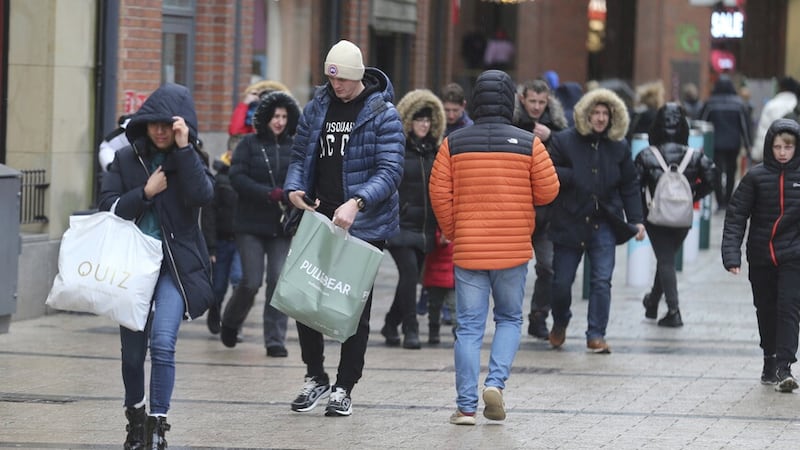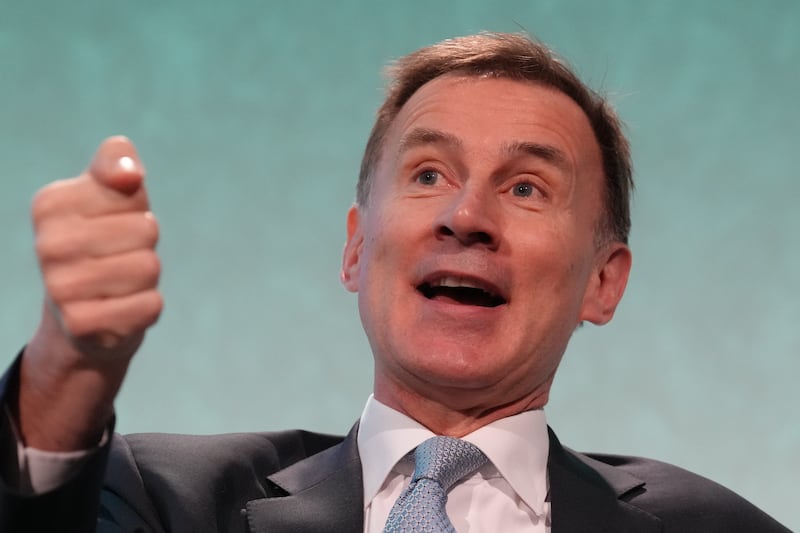A COMBINATION of cross-border shopping and the £600 energy payment helped the north’s retail sector buck the wider economic trend and grow during January, a new report suggests.
The latest purchasing managers’ index (PMI) from Ulster Bank showed activity in the Northern Ireland private sector declined for the ninth successive month in January.
The monthly survey, which is based on the experiences of 200 businesses across the construction, manufacturing, retail and services sectors, is considered a reliable bellwether for the state of the north’s economy.
It said while the overall trend in the private sector remained one of decline during January, retail significantly outperformed the three other sub-sectors and actually managed to grow between December and the start of the year.
Not only did retailers report an increase in sales, but retail employment rose at its fastest pace since May 2018.
Ulster Bank’s chief economist, Richard Ramsey described it as a surprising turn-up in the midst of a cost-of-living crisis.
“There are two key factors likely to be driving this,” he said.
“Unlike Northern Ireland and the UK, the Republic of Ireland is neither in nor flirting with recession and cross-border shopping is providing some valuable support.
“During the second half of January, the £600 energy grant also started arriving with households, and in some instances, this subsidy seems, in part at least, to have found its way into the tills of local retailers.”
Aside from the surprise bump for retail, the north’s private sector largely started 2023 the way it ended 2022, with falling levels of business activity and new orders, alongside an easing in inflationary pressures.
Both business activity and incoming orders fell for the ninth successive month, although the rates of decline slowed in January.
The survey reflected falling demand, in terms of new orders, across all four sectors.
While the Office of National Statistics announced on Friday that the UK economy as a whole narrowly avoided falling into recession in 2022, Northern Ireland’s official regional measure of economic growth, pointed to a weaker performance here last year.
The Northern Ireland Research and Statistics Agency’s Composite Economic Index showed the economy here contracted in both the second and third quarters of 2022, crossing the threshold for a technical recession.
The report for the fourth quarter of 2022 will not be published until April.
Richard Ramsey said the latest PMI showed some signs of improvement in January, with inflation easing. But he said firms are still increasing their prices more than any other time prior to the pandemic.
“Employment growth accelerated to a six-month high with all four sectors increasing staffing levels in January.
“Indeed, NI firms posted the fastest rise in employment levels of all 12 UK regions.
“That was despite the fact local firms posted the sharpest decline in output within the UK in January.”
He said: “This suggests that local firms are hoarding labour, given the difficulty in recruiting staff and widespread skills shortages.
“How sustainable this approach is will be tested in the months ahead.
“The extreme pessimism reported in 2022 appears to have lifted,” added the economist. “Only construction firms are expecting further falls in output in 12 months’ time.
“Manufacturing and retail are their most optimistic in 10 and 11 months respectively.”








